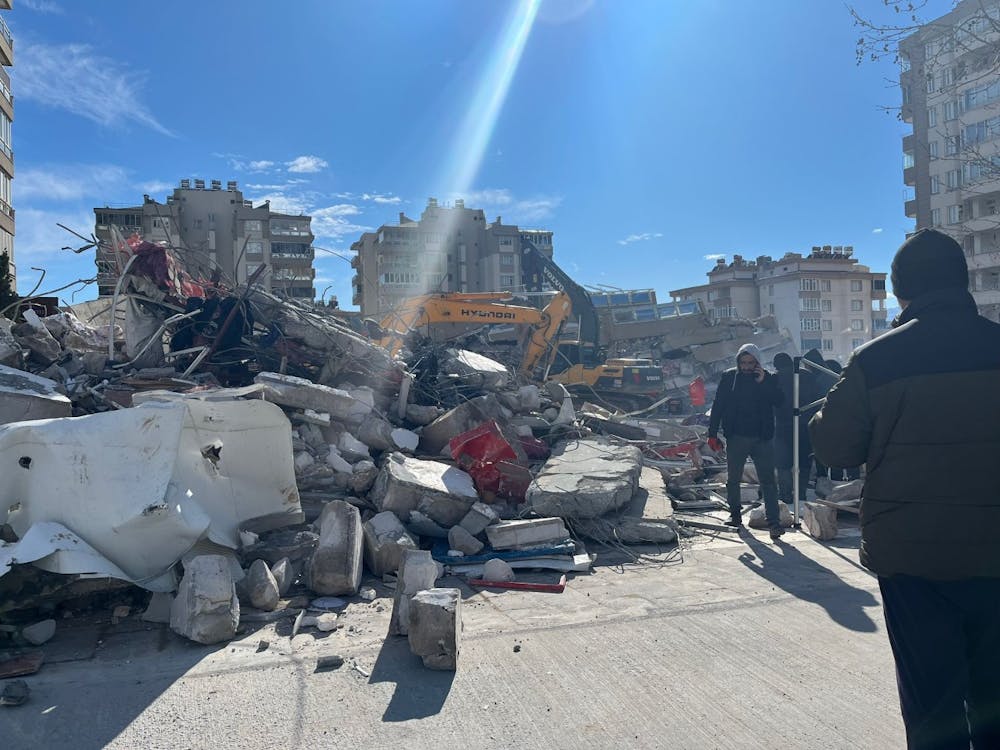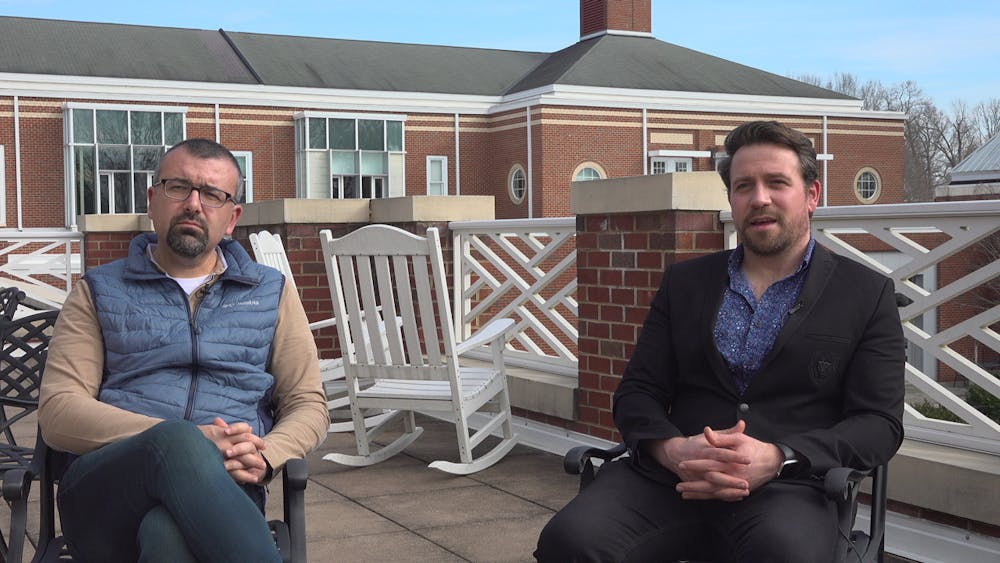“One of the hardest 40 minutes in my life.”
That’s how Mustafa Akben, professor of management at Elon University, described his Sunday night after learning there had been an earthquake in his home city of Kahramanmaraş, Turkey.
The initial 7.8 magnitude earthquake hit in the early hours of Feb. 6 along the Turkish and Syrian border. The quake, and several strong aftershocks, brought down thousands of buildings, and the death toll has risen to more than 12,000 people as of Feb. 8.
5,900 miles across the Atlantic Ocean, Akben was wondering if his mom, dad, brother and extended family were among the dead. He called his family again and again.
He finally reached his 22-year-old brother who wasn’t speaking in coherent sentences.
“They’re collapsing, they’re collapsing. They’re people dying, people dying,” Akben’s brother told him.

Buildings are collapsed around Elon University professor of management Mustafa Akben's home city of Kahramanmaras, Turkey. These buildings include Akben's parents' apartment building. His family got out in time. Photo courtesy of Mustafa Akben.
A few hours later, he made contact with his parents and heard about the earthquake from his their perspective. According to Akben, his father watched a wall in their family’s apartment crumble. Then he looked out the window.
“All the city is collapsing in front of his eyes,” Akben said.
His mom and dad were able to make it outside safely before they watched their apartment building fall.
“However, not everyone in my family was lucky.”
His mom and dad rushed to the home of his uncle, Akif, only to find the house folded in on itself like an accordion. His parents waited two days for rescue crews to arrive. They still haven’t seen or heard from Akif. He is presumed dead, but Akben is still holding out hope.
“Maybe we have a 2% chance left, maybe less than that,” Akben said. “It’s hard sometimes to call him lost.”
Abken said he is worried about everyone in the cold temperatures, including his parents, who spent the first night after the earthquake in their car. They didn’t have enough gas in their car to keep the heat on as they slept.
They spent the following night in a fire station. All the while, the only thing his mom, dad, brother and sister-in-law have had to eat is a large piece of bread split between the four of them.
The guilt, Akben said, is creeping in.
“When I’m biting something here, let’s say, eating salad. I said, ‘I wish I had a chance to send this salad to them,’” he said.
For some Turks, this earthquake feels all too familiar. In 1999, a 7.6 magnitude earthquake hit near Istanbul, killing 17,500.
Baris Kesgin, Elon professor of political science, grew up in the northeast part of Turkey in a town called Çanakkale. He remembers the earthquake in 1999 and said he feels like the government didn’t learn from that disaster.
“The scale, the sheer size — it’s scary,” Kesgin said.
His family, who still lives there, is not in harm's way, but Kesgin said he still feels a deep connection to his country.
“There is nothing natural about the death toll,” Kesgin said. “You need political will. You need local authorities to enforce the building codes and infrastructure regulations. And that's where Turkey has fallen short.”
Akben agreed and offered a Turkish saying.
“Not earthquakes, but buildings kill,” Akben said. “If you construct your buildings and legalize the constructions in a safe manner, then you're going to have a strong, earthquake-safe environment.”
Elon students, faculty and staff have reached out to Kesgin and Abken, sharing sympathy and offering support. Both professors appreciate the kindness. But Abken said he still feels anxiety for his family and guilt being so far away from home. To cope he is throwing himself into his teaching. He wants to be an example of resilience.
“Life is not always good or always goes in the intended way. There is a moment that you, me and everyone is going to face some challenges in life,” Abken said.
He also encouraged his students to reach out to loved ones.
“Call your family. Just say, ‘I’m very grateful for you,’” Abken said.
Abken’s elementary school, local movie theater and favorite burger restaurant are no longer standing. But his mom, dad and brother are.
“Still, I'm hopeful for a brighter future,” Abken said.
His family is on their way to the nearest safest city.


